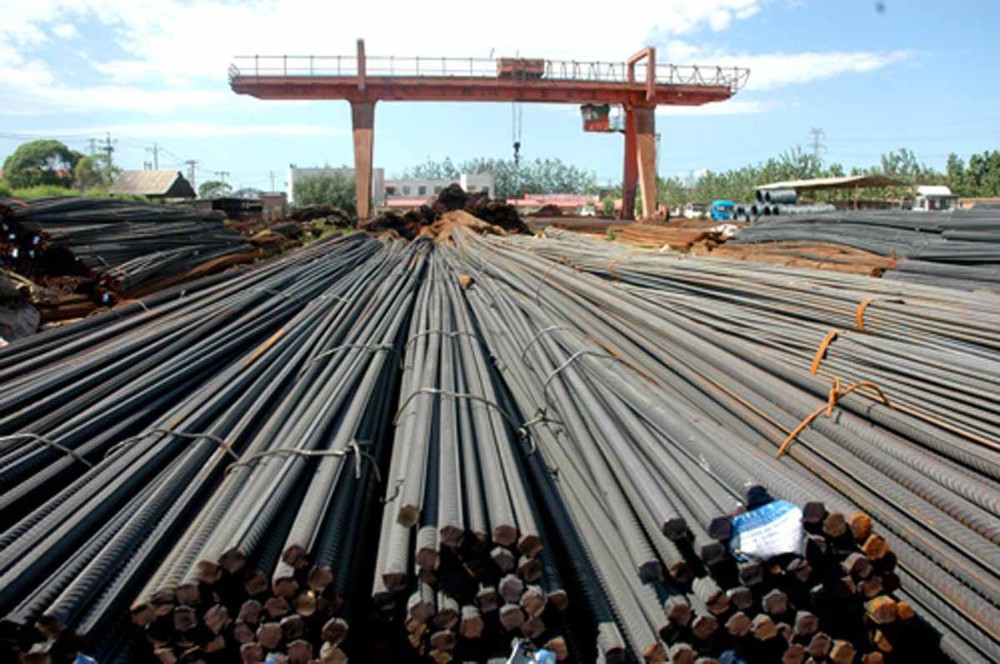What Type of Steel is Rebar? A Comprehensive Guide to Reinforcing Steel
Reinforcing bar, commonly known as rebar, plays a critical role in the construction industry by providing tensile strength to concrete structures. Without rebar, concrete—though strong in compression—would be prone to cracking and breaking under tensile stress. This combination of steel and concrete creates a reinforced structure capable of withstanding various forces, making it indispensable in modern construction.
One of the most common questions asked in the construction field is, "What type of steel is rebar made from?" Understanding the type of steel used in rebar is crucial, as it directly affects the performance, durability, and longevity of the structures it supports. In this article, we will explore the different types of steel used in rebar, their advantages, and how to select the right one for your project.

What is Rebar?
Rebar, short for reinforcing bar, is a steel bar or mesh of steel wires used to reinforce and support concrete. Concrete is excellent at handling compressive forces but struggles with tensile stress. Rebar provides the tensile strength that concrete lacks, ensuring the structural integrity of buildings, bridges, roads, and other infrastructures.
Commonly found in the foundation of buildings, bridges, and other critical structures, rebar is embedded in concrete to absorb tension, providing enhanced strength and flexibility. Rebar allows concrete to perform better under pressure, ensuring it can support heavy loads without cracking or crumbling. It's especially vital in areas subject to seismic activity, where tensile forces play a major role in the structural movement.
The versatility and durability of rebar make it essential in a wide variety of construction applications, from high-rise buildings to highway overpasses. However, not all rebar is created equally. The type of steel used in its manufacturing can significantly impact the performance of the material.
Why Steel is the Chosen Material for Rebar
Steel is the primary material used for rebar due to its unique properties that make it ideal for reinforcing concrete structures. There are several key reasons why steel is preferred:
-
High Tensile Strength: Steel has exceptional tensile strength, meaning it can withstand considerable tension without breaking or deforming. This makes it perfect for concrete reinforcement, as concrete alone lacks this ability.
-
Flexibility and Ductility: Steel is flexible and can be shaped or bent into various forms, allowing it to be easily adapted to different structural designs. Additionally, steel’s ductility means it can withstand deformation before failing, giving structures the ability to resist collapse under extreme conditions.
-
Durability: Steel rebar is highly resistant to weather conditions and corrosion when treated properly, extending the lifespan of the structures in which it's used.
-
Thermal Compatibility with Concrete: Steel and concrete expand and contract at similar rates when exposed to temperature changes, reducing the likelihood of cracking.
These characteristics explain why steel has been the go-to material for reinforcing bars across the globe. However, not all steel used in rebar is the same—there are different types to suit various environmental conditions and structural requirements.
Types of Steel Used for Rebar
The type of steel used in rebar manufacturing varies depending on the specific needs of a project. Let’s look at the main types of steel commonly used:
-
Carbon Steel Rebar
Carbon steel rebar, also known as "black rebar," is the most widely used type. Made primarily from carbon and iron, this type of rebar is affordable and easily available. Its high tensile strength makes it suitable for most general construction applications. However, carbon steel rebar is susceptible to corrosion in humid or high-saline environments, such as coastal areas. Despite this drawback, its cost-effectiveness and versatility make it a popular choice for most projects.Advantages:
- Affordable
- Readily available
- Strong tensile properties
Disadvantages:
- Prone to corrosion in wet or salty conditions
-
Stainless Steel Rebar
Stainless steel rebar is highly resistant to corrosion, making it ideal for structures exposed to harsh environmental conditions, such as marine structures, highways, and bridges. While more expensive than carbon steel, stainless steel rebar offers long-term savings by reducing maintenance and repair costs.Advantages:
- High corrosion resistance
- Long lifespan in harsh conditions
Disadvantages:
- High upfront cost
-
Epoxy-Coated Rebar
Epoxy-coated rebar is carbon steel with a thin coating of epoxy applied to the surface. This coating provides a protective barrier against corrosion. Epoxy-coated rebar is often used in environments prone to moisture or corrosive elements, like parking garages and bridges. However, the epoxy coating can be damaged if not handled carefully during installation.Advantages:
- Good corrosion resistance
- Suitable for high-moisture environments
Disadvantages:
- Coating can be damaged during installation
- More expensive than uncoated carbon steel
-
Galvanized Steel Rebar
Galvanized rebar is another corrosion-resistant option, coated with a layer of zinc to protect the steel from rusting. It offers better corrosion resistance than epoxy-coated rebar and is less susceptible to damage during installation.Advantages:
- Excellent corrosion resistance
- Durable and low-maintenance
Disadvantages:
- More costly than carbon steel
- Slightly more expensive than epoxy-coated rebar
How Steel Type Affects Rebar Performance
The type of steel used in rebar significantly affects the performance of reinforced concrete. For example:
- Tensile Strength: Carbon steel rebar offers excellent tensile strength, but when stainless steel is used, tensile strength remains high with the added benefit of corrosion resistance.
- Durability in Harsh Conditions: Stainless steel and galvanized rebar provide superior durability in extreme conditions, such as high humidity or saline environments. In contrast, carbon steel requires additional protective measures like coatings to ensure durability.
- Corrosion Resistance: Projects in coastal or high-moisture areas benefit from the use of stainless steel or epoxy-coated rebar to prevent premature corrosion and structural damage.
Choosing the right type of steel for your rebar directly influences the longevity and safety of your structure. Engineers often base their decisions on factors like local weather conditions, the specific load the structure will bear, and overall project budget.
Choosing the Right Type of Rebar for Your Project
Selecting the right type of steel for rebar involves considering multiple factors, including the environment in which the structure will be built, the expected lifespan of the project, and the cost. Here are key things to keep in mind:
- Environmental Exposure: If your project is in a coastal or high-moisture area, opting for stainless steel or galvanized rebar may be worth the added investment due to their superior corrosion resistance.
- Budget Constraints: While stainless steel is the most corrosion-resistant, it can be cost-prohibitive. In such cases, epoxy-coated or galvanized rebar might be a more cost-effective solution that still offers reasonable protection.
- Load Requirements: Consider the weight and stress the structure will need to bear. For high-stress applications, stronger grades of steel or added corrosion resistance may be necessary to ensure the structure's safety over time.
Consulting with structural engineers or using building codes specific to your project’s location can help in making an informed decision.
Conclusion
In conclusion, rebar is a fundamental component of reinforced concrete structures, with the type of steel used playing a critical role in ensuring durability and strength. Carbon steel is the most common and cost-effective choice for general construction, but stainless steel, epoxy-coated, and galvanized rebar offer specialized benefits for harsher environments.
When selecting rebar for your project, it's essential to weigh the environmental factors, the structure’s load requirements, and the budget to choose the most suitable type of steel. For long-lasting structures, investing in the right type of rebar can make a significant difference in terms of performance and maintenance.
If you're unsure which rebar is best for your project, consult with construction experts or engineers who can guide you toward the optimal solution for your specific needs.

